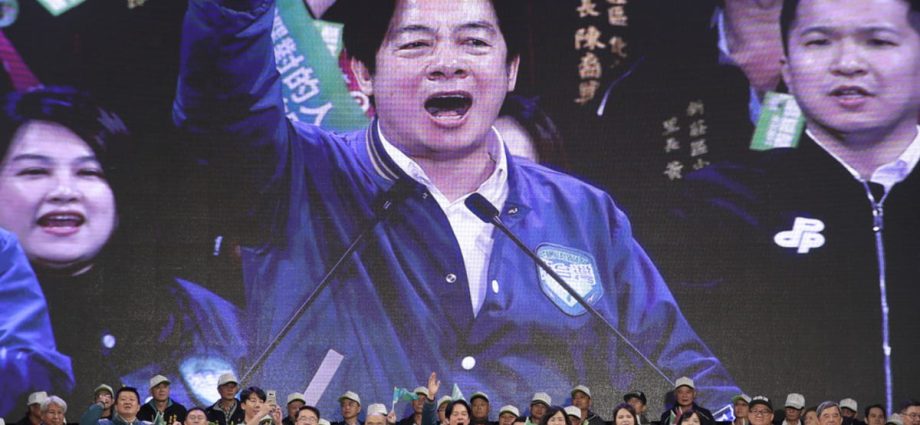
HONG KONG: China’s Taiwan Affairs Office said on Saturday (Jan 13) the victory of Taiwan’s ruling Democratic Progressive Party (DPP) candidate William Lai Ching-te in an islandwide election would not change the basic landscape of cross-strait relations.
In a statement carried on China’s state Xinhua news agency, Chen Binhua, a spokesperson for the State Council Taiwan Affairs Office, said the results showed the DPP cannot represent mainstream public opinion on the island.
The win marks the first time a DPP president will hand over the reins within the party. Current vice-president Lai succeeds outgoing president Tsai Ing-wen, who cannot run for re-election after serving two consecutive terms.
Lai, 64, was the frontrunner in public polls going into Saturday’s vote. The former mayor of Tainan is a noted proponent of Taiwan’s independence. His rivals and critics have said his election would endanger Taiwan and threaten peace with China.
MIXED REACTION TO LAI’S PRESIDENTIAL WIN
On the international front, reaction was mixed after Taiwanese voters rebuffed China and gave the ruling party a third presidential term. Russian Foreign Ministry spokeswoman Maria Zakharova said on Saturday that Moscow continued to view Taiwan as an integral part of China.
President Joe Biden said on Saturday the United States, who is Taiwan’s most important international backer and arms supplier, is “not supporting” the island’s independence.
The European Union, however, “welcomed” Taiwan’s presidential election on Saturday and “congratulates all the voters who participated in this democratic exercise”, a statement said, without mentioning president-elect Lai.
The statement by a spokesperson for EU diplomatic chief Josep Borrell added: “The EU remains concerned about growing tensions in the Taiwan Strait and opposes any unilateral attempt to change the status quo.
“The European Union underlines that peace and stability across the Taiwan Strait are key to regional and global security and prosperity.”

